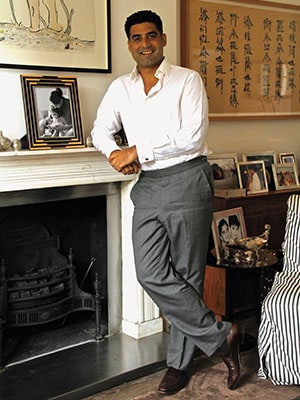
Medical Services at Home: Burmans Expand Their Market
The biggest plus for this service would be the convenience for patients and their families
A year after leading his family’s entry into the health care segment, Gaurav Burman is satisfied that Health Care at Home India (HCHI) is “growing faster than expected”. The fifth generation entrepreneur of the Burman family—which owns FMCG major Dabur—has now expanded the services of his new company to Chandigarh and Jaipur, fast catching up with its peer from Bangalore, Portea Medical.
Burman co-founded the company in 2013 with Charles Walsh, who had earlier set up Healthcare At Home (UK), making it a billion-pound enterprise and the biggest of its kind in the country. The Burman family, headed by Anand Burman, holds 65 percent stake in HCHI. The company began operations from the Delhi-NCR market last year.
“We will break even in our Delhi-NCR operations in another year,” says HCHI CEO Vivek Srivastava. Though Burman is unwilling to share the company’s financials, he has set a revenue target of Rs 500 crore by 2018.
Providing medical services at home is, at present, a small part of the $80 billion health care industry in India, but competition is heating up as entrepreneurs find the low capital-intensive business attractive. Portea Medical, founded by entrepreneur husband-wife duo Ganesh Krishnan and Meena Ganesh, is a year older than HCHI and right now operates in 18 cities including Chennai, Delhi-NCR and Kolkata.
HCHI is smaller but Burman believes that his company has an advantage when it comes to human resources, the most important part of the business.
Along with HCHI, he had founded Berkeley HealthEDU, a joint venture with Andrew Branagh, who set up the American health care-training firm Boston Reed College. The JV gives training to doctors and nurses. “Getting the right personnel is the biggest challenge in the sector now as we have to provide personalised care to our patients,” says Srivastava.
The segment right now hopes to do better than its traditional peers—hospitals—because of its promise of cheaper and focussed services. “It is best suited for patients who need post-surgery, ICU, oncology services. Another segment is taking care of the elderly,” says Gaurav Thukral, a doctor-turned-manager who is vice president, business development, at HCHI. Srivastava adds that ICU treatment at home can be 50 percent cheaper than in a frontline private hospital.
HCHI, which has a network of 1,000 doctors catered to 1,000 patients in Delhi-NCR market last year. The company is investing Rs 200 crore to expand businesses in the next two years.
The biggest plus for this service, though, would be the convenience for patients and their families. Srivastava recounts how a patient had to travel for two hours to get an injection. “His son had to take leave for the day to accompany his father.” But with home-based service, that is taken care of.
Burman, who also leads the family’s investments in finance and education, will hope that the message spreads fast enough as hospitals still remain the preferred destination. “We know we can’t compete with the hospitals. We want to complement them,” he says.
(This story appears in the 30 November, -0001 issue of Forbes India. To visit our Archives, click here.)





